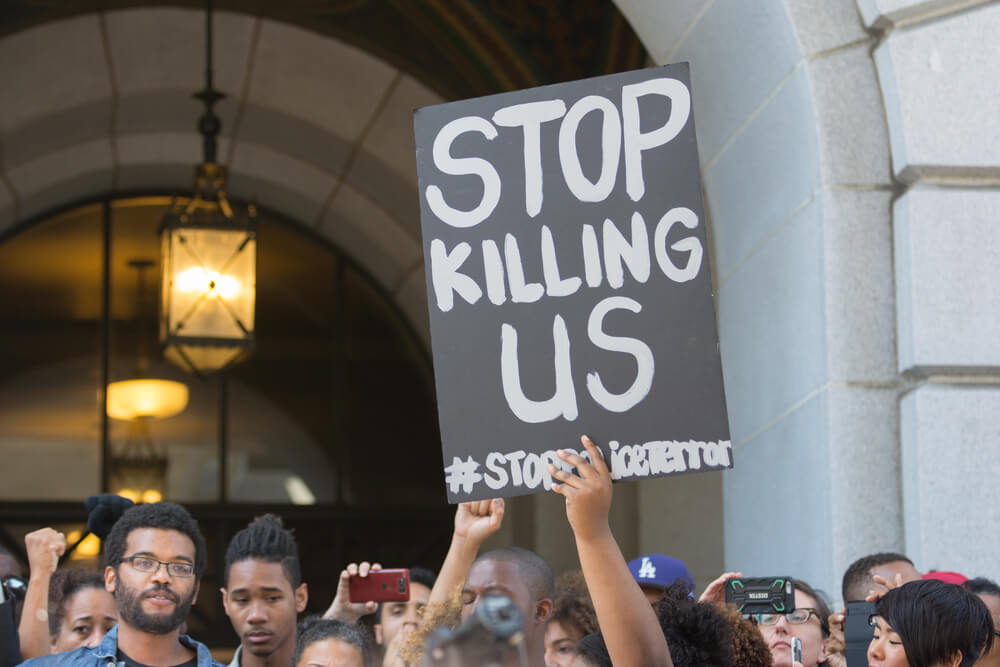There is disquiet in the soul of America.
It has been expressed night after night on the streets of more than 100 towns and cities. That number of urban sites, with all those tens of thousands of people, are a cry from the hurting heart of America — yes, over the death of George Floyd, the proximate cause, but it is about more.
The demonstrations are the sum of multiple grievances that roil America: grievances over police excess; over the plight of those at the bottom with poor wages, little or no health care, and crushing debt from credit cards that they will never earn enough money to pay off in all of the years of their lives.
John Butler, professor at the University of Texas at Austin’s McCombs School of Business, describes this debt as “technological sharecropping.”
It is the frustration that is the underside of the American Dream; the frustration that however hard one works, one will never escape the vise of debt, the squalor and degeneration of poverty with its cramping of the spirit and breaking of the will.
It is a well-founded sense of victimhood, for there are real victims — not only the victimhood of race, but also the pervasive victim status that settles upon all on the lowest rung of the economic ladder and even many rungs above, reaching well into the struggling middle class.
It is about despair: despair over money, despair over jobs, despair over squalor.
It is about agony that morphs into anger at not being heard, at being used but not respected — being the target of economic opportunity for those who own the corporations that seem to exploit, from the usurious pay-day lender to the large corporations that hide behind technology for comfort, to avoid confrontation, and to present any dispute as an assault on their right to do as they wish.
In this vein, it is the phone company that makes it onerous to report a fault on the line, the cable company that overcharges for its services, taking advantage of its natural monopoly status.
It is about the insurance company that sends you a computer-generated letter, assuring that you will not be able to deal with an individual, speak to a human being. (Bank of America will not give out phone numbers for officers.) The wretched must go in person to get near anonymous help.
It is knowing that the rich have numbers to call, specialists to see, detours around difficulties, and the glorious knowledge that they will have the more questionable of their deeds shielded from scrutiny.
It is about the rigorous greed of the few who must ensure their wellbeing through droves of lobbyists. It is about the taxes that the wealthy do not pay, and the unfortunate do pay.
It is about politicians who talk about freedom but perfect the freedom not to hear the whimpers of need from their constituents: their need for health care, employment security, affordable housing, and functioning schools. It is about a whole stratum of our society, from the very bottom to the middle, that feels that society has robbed them of everything, from respect to a hearing to simple dignity.
I have covered demonstrations, from those for self-government in colonial Africa to those against nuclear armament in London to the riots on the death of the Rev. Dr. Martin Luther King Jr. in Washington and Baltimore (they also went nationwide) to the repeated protests against the Vietnam War and the bombing of Cambodia.
There is in a demonstration a kind of camaraderie, a feeling of fellowship, a sense of human warmth and kindness that is powerful and invigorating — and, yes, intoxicating, which can trigger bad behavior. Sadly, if violence erupts, the demonstrators hand over the keys to their futures to those they are protesting.
The people in the streets are there not only because of police brutality, injustice and economic anguish but also in protest of the president of the United States.
Donald Trump has fanned the embers of differences between people, emboldened excesses in police forces and encouraged conflict over harmony, ridicule over appreciation, and introduced the vernacular of the street into the political dialogue.
It is oddly appropriate that it is in the street that Trump’s presidency is being reviled and where it may founder.

 Follow
Follow
Leave a Reply